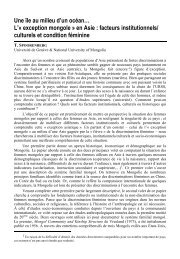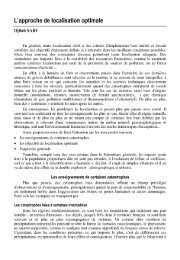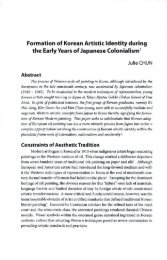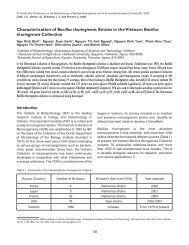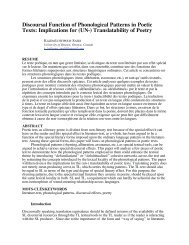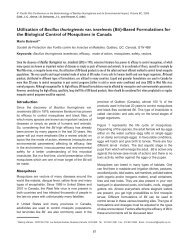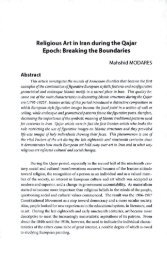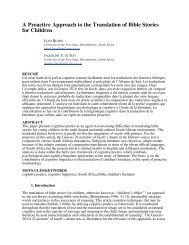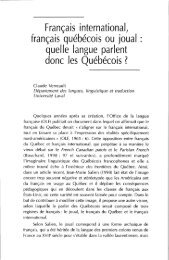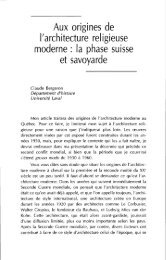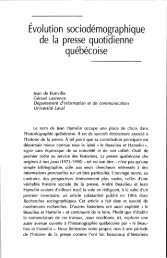PBL as a New Pedagogical Approach for Translator Education
PBL as a New Pedagogical Approach for Translator Education
PBL as a New Pedagogical Approach for Translator Education
You also want an ePaper? Increase the reach of your titles
YUMPU automatically turns print PDFs into web optimized ePapers that Google loves.
of its direct linkage with their learning aims to be a professional translator. The participants’<br />
positive thoughts in relation to the approach also extend to its nature, which they believe enables<br />
them to obtain the knowledge necessary in order to undertake translation jobs when they notice that<br />
they lack fundamental knowledge of the area they need to know <strong>for</strong> accomplishing their translation<br />
jobs. Similar number of the participants, <strong>as</strong> in the previous comment, points out that <strong>PBL</strong> helps<br />
the novices to develop their knowledge through activities in the approach in a manner that other<br />
group members’ thoughts and knowledge enrich the effectiveness of their problem-solving<br />
processes and outcomes. As can be seen from these results, it appears that <strong>PBL</strong> is widely<br />
accepted by the entire group of the participants on the grounds that <strong>PBL</strong> allows novice translators to<br />
experience knowledge-building opportunities in a realistic setting with peer cooperation and to gain<br />
insights which are reflected in their actions.<br />
6. Conclusion<br />
In this paper, the differences between a novice and an expert, and the elements which are likely to<br />
underpin the evolutionary pathway from a novice to an expert were first discussed. An<br />
examination of the existing literature in this area reveals that the notion of “problem-solving” is<br />
considered to play a central role in the evolution of an individual’s level of expertise from that of a<br />
novice to that which is characteristic of an expert. Given the fact that the mainstream pedagogical<br />
approach which is currently used in translator education is one in which a translation teacher<br />
provides a package of in<strong>for</strong>mation to novices, a clear lack of opportunities and directed ef<strong>for</strong>ts<br />
towards bridging the gaps between a novice and an expert is evident. The employment of novel<br />
pedagogical approaches which can fill these gaps is, there<strong>for</strong>e, indispensable in order to provide a<br />
sound educational framework in this area. The potential advantages of Problem-B<strong>as</strong>ed Learning<br />
(already an established approach in a growing number of other fields) <strong>as</strong> a novel approach in<br />
translator education have been outlined. The attempts which were made in the present pilot study



